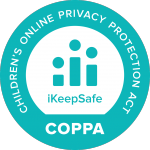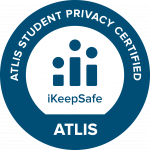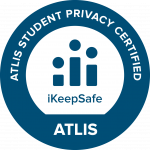While summer is a time for resting at the end of a long school year, it’s also time for summer camp. According to Asaf Darash, CEO of registration software company Regpack, more than six million children attend camp every summer at more than 12,000 camps across the United States. Of these, 5,000 are day camps and 7,000 are sleepaway camps.
Increasingly, more parents are choosing to send their kids to academic-themed camps and STEAM (science, technology, engineering, art and mathematics) camps. While these camps include swimming and roasting marshmallows over the campfire, they also include lessons: What kind of biology lives in the lake you’re swimming in? Why does the marshmallow expand when it’s exposed to heat?
Academic camps are a great way to boost a child’s confidence in school and in general. And there are many other reasons why you should consider sending your kid to science camp this summer.
Science Camps Bring STEAM Out of the Classroom
One of the main reasons why STEAM camps foster a love of science and math is because the lessons aren’t structured in the traditional reading and testing format. The pressure of getting good grades is off and kids can tap into their natural curiosity and desire to explore.
“From robotics to video game creation, to oceanography to emergency and veterinary medicine, your child will see the true life impact of science,” Meagan Clanahan writes at the Houston Moms Blog. “Suddenly it becomes alive to them rather than just vague concepts taught in a sterile environment.”
STEAM camps are often taught by science professionals or engineers who actually apply what they’ve learned in their careers. Instead of reading about sharks in a book, students can talk to a shark aquarist and pet rays in an aquarium. Instead of reading about space, campers can meet an astronaut and ask him or her what it was like.
“Science isn’t just a subject that you can put into a box and take it out to teach kids,” says Alan Saltz, director of 92nd Street Y. “It’s really got to become a part of their daily lives, and I think camps can help do that.”
Saltz says many STEM camps aren’t just for robotics fans or dedicated coders. Today’s science camps include cooking, rafting and hiking to let students see the real-world effects of STEAM.
Students Don’t Have to Enter a STEAM Career to Enjoy Camp
Your child doesn’t need plans to become a future biologist or engineer to enjoy summer camp. Many students who attend sign up because they like the theme — whether it’s learning about space or the chemistry of cooking.
“By the time they graduate from college, most of these children probably won’t become programmers,” Lauren Boyer writes at the National Science & Technology Medals Foundation. “But that doesn’t make the training any less important,”
STEAM-infused camps give students 21st century skills to thrive. Boyer uses the analogy that most students don’t grow up to become novelists, but writing is still a valuable skill in communicating with the world. The same concept applies to STEAM skills.
Summer Camps Put the A in STEAM
Over the past few years, many educators have added Arts to the existing STEM (science, tech, engineering and math) acronym, making it STEAM.
“The STEAM emphasis should focus on sparking students’ imagination and embracing a more innovative educational approach by incorporating creative thinking and design skills within the core content of STEM subjects and projects,” Megan Meyer writes at Honolulu Family.
Unfortunately, not all teachers and school districts have the resources to incorporate creative projects into every lesson. At STEAM camps, students have the chance to emphasize the arts element by creating something and using imagination to solve problems.

Academic Summer Camps Prevent Learning Loss
STEAM summer camps can boost confidence in the short run, but can also help students throughout the school year.
Academic summer camps continue the learning process in low-pressure environments, so students can focus on the material without the stress of getting good grades, the team at Mad Science writes. This allows students who struggled during the school year to catch up while reducing the amount of “summer brain drain” that most students experience.
According to Oxford Learning Centers, 2.6 months of math skills are lost on average during the summer. By sixth grade, students who experience summer learning loss are two years behind their peers who continue studying over the summer. However, students don’t have to stay in summer school to prevent this brain drain: All it takes is two to three hours per week to stay on top of math, reading, and science skills.
Spending a few weeks learning about space, technology, or marine biology can foster confidence in science and help your child succeed in next year’s classes.
STEAM Boosts Confidence for Girls
Interestingly, confidence and the mental perception of a subject play significant roles in a child’s (and even an adult’s) performance. This helps explain why a gender gap persists in STEAM fields. Associate professor Rick Nauert reports that the gender gap is more about perception than ability.
“Girls rate their abilities markedly lower than boys, even when there is no observable difference between the two,” he writes. “Boys are significantly more confident in challenging mathematics contexts than otherwise identically talented girls. Specifically, boys rated their ability 27 percent higher than girls did.”
By building their daughters’ confidence early through STEAM programs and summer camps, parents can help them pursue their passion for science and math.
STEAM Camps Benefit Students of All Ages and Abilities
Most parents start looking for summer camps when their kids enter elementary school (typically around age nine) and then stop at the preteen years. There are those who are unable to afford summer camp and parents with special needs children who worry that their kids won’t fit in. However, there are benefits to sending students of all ages, incomes, and learning levels to STEAM camp, even those offered by the local parks department.

Pre-K and Kinder Campers
It’s never too early to foster curiosity about the world. Some parks and zoos offer camps specifically for younger kids and even invite the parents to participate.
The staff at Camp Edmo brainstormed a few benefits of encouraging younger students to attend a STEAM camp — even before they’re able to develop apps and build robots:
- Younger kids get a preview of what school will look like, with a structured day and new environment.
- They learn teamwork, kindness, and curiosity.
- Kids can practice making friends and breaking away from mom and dad in a less intimidating environment than school.
Kindergarten might not seem as scary on the first day of school, especially if kids get to see a few friends from camp again.
Kids With Learning Disabilities
Many students aren’t able to express themselves within the confines of the classroom. They might have a passion for tech or the arts, but need to follow a curriculum set by the school’s county or state. This can put students off from learning because they don’t fit in the same box as other students.
STEAM camps build confidence in students with learning disabilities by helping them explore their passions outside of the classroom.
“For students diagnosed with a learning disability, such as dyslexia or ADHD, additional support can make a tremendous difference during the academic year and long term,” Erin Wynne writes at the Eagle Hill School Learning Diversity Blog.
“Camps and their inherent nurturing atmosphere allow kids to explore new passions and areas of yet unknown strength, which, in turn, bolsters their self-confidence and allows them to form a better sense of their own ability and identity.”
Kids who struggle in a traditional learning environment have the freedom to explore in summer camp while dedicating time to projects they deeply care about.

Underrepresented Students
Along with preventing learning loss, STEAM camps give students confidence in themselves to enter their chosen field.
The New York City Department of Design and Construction’s Summer Middle School Enrichment Program is a great example of boosting confidence in STEAM fields.
Students from District 9 in the Bronx learned from STEAM professionals throughout July and went on field trips to the Metropolitan Museum of Art, the Museum of the City of New York, the New York Hall of Science, and Google’s New York headquarters in Chelsea.
Before and after the program, students completed a questionnaire about their perceived abilities in STEAM.
There was a 25-percent increase in students’ desire to take more math and science classes and a 21-percent decrease in the perception that fields like engineering and architecture aren’t possible career options for students in underrepresented communities, the DDC reports.
Teens Transitioning to Adulthood
Teens can benefit from attending a STEAM camp at a local university. Counselors at Patrick Henry College write that teen camps give high school students a preview of what campus life will look like. They can meet current students and alumni to talk about their experiences while spending the summer with future STEAM majors.
Students who are on the edge of choosing a university or a field of study could make their decisions based off of these camps.
STEAM Camps Help Kids Develop Social Skills
Even if your child isn’t attending a dedicated STEAM camp, they can benefit from interacting with their peers and engaging in new activities.
In fact, 74 percent of kids and teens say they did things at camp they were previously afraid of doing. Not only are they building skills, but they’re trying new things. Parents also see noticeable changes because of this, as 70 percent say their children gained self-confidence at camp.
“With activity and growth comes success or failure,” technology camp host iD Tech says. “Whether it is basketball or coding, each activity comes with its own set of mini milestones/tests. Some of these activities might be brand new to your child, while others could be extensions of what they already know.”
Developing Empathy and Compromising
When your child is in a completely new environment, they have to navigate relationships with peers and authority figures. This teaches them about:
- Making friends with a new group of peers
- Asking for help from friends and counselors
- Voicing their opinions and compromising
- Developing friendships with counselors, who can become role models
“The camping experience really develops emotional intelligence in children by making them more empathetic,” Dr. Troy Glover tells OurKids.net. “And I think that happens through the day-to-day activities with a group of people that you have to learn to live with—whether it’s overnight (camp) or not.”
Your child might not return from camp a dedicated future engineer, but she will benefit from the exposure to science outside the classroom and from social interactions with others. This will make her more confident when going back to school in the fall, both academically and socially.









